
"But my advice has always been clear to my successors in Brussels: Don't take action which is going to damage the relationship in the long term. Don't change the emphasis from being open to being protectionist. Don't start looking for unnecessary fights with China. Because growing that relationship between China and Europe is really important for both of us in the long term. So don't do anything in the short term that you will regret because it risks damaging the long-term relationship," said Mandelson, a former business secretary in the British government.
He recently led a delegation of about 20 UK politicians from the three major political parties to attend the sixth China-UK Leadership for the Future Forum in Beijing. The forum, co-hosted annually by the International Department of the Central Committee of the Communist Party of China and the Great Britain-China Center, aims to promote exchanges between the two countries.
China is the EU's second-biggest trading partner, behind the United States, and the EU is China's largest trading partner. China is the EU's biggest source of imports by far and has also become the EU's fastest growing export market. The two economies now trade well over 1 billion euros ($1.34 billion) a day, according to EU statistics.
But trade conflicts between China and the EU intensified last year after the EU launched an anti-dumping investigation into Chinese solar panels in September and an anti-subsidy investigation in November. Final rulings of those cases are expected to be issued this year. Since Europe is China's largest overseas market for solar panels, accounting for about 60 percent of the country's total solar panel exports in 2011, the investigations could deal a more severe blow to the Chinese solar industry than a US probe launched earlier.
The European Commission, which handles trade issues for the 27-nation bloc, has also considered launching an investigation into alleged subsidies to Chinese telecom equipment in Europe, which could lead to steep tariffs on China's two telecom giants Huawei and ZTE.
The commission launched an anti-subsidy investigation into Chinese organic-coated steel products in February, and preliminary findings asked EU members to back punitive tariffs against Chinese steel companies, the Financial Times reported recently.
"You will see more cases like these in 2013 as the EU, burdened with economic gloom and debt troubles, tries to use trade remedy measures to protect its own companies," said Chen Fengying, director of the Institute of World Economic Studies.
Because the EU is not a homogeneous market, different countries within the zone would take different attitudes toward China, Chen said, which would also increase the possibilities of trade frictions.
But Markus Ederer, EU ambassador to China, said on Jan 16 that the EU will not enter into a trade war with China and the two will start negotiating an investment treaty this year. Under the treaty, investors would be treated equally and their investments would be protected.
China's foreign trade expanded by 6.2 percent last year, missing the 10 percent target set earlier. The country faces challenging trade prospects this year, due to weak external demand and an unfavorable trade environment, Shen Danyang, spokesman for the Ministry of Commerce, said recently.
 |

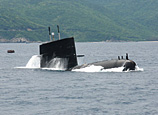
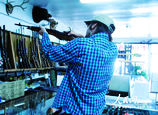
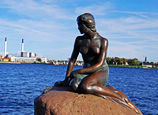


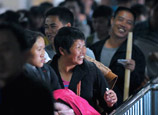


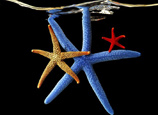






 Photo story: The art of food, the art of life
Photo story: The art of food, the art of life


![]()
